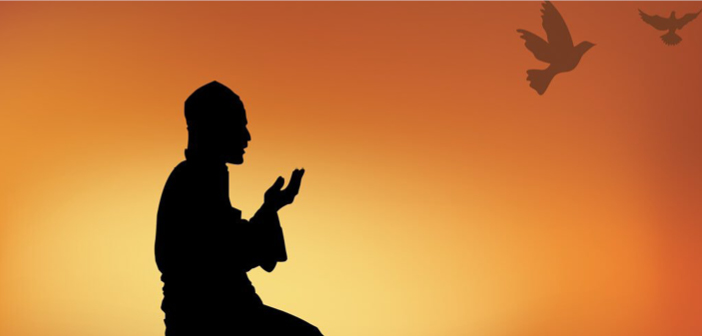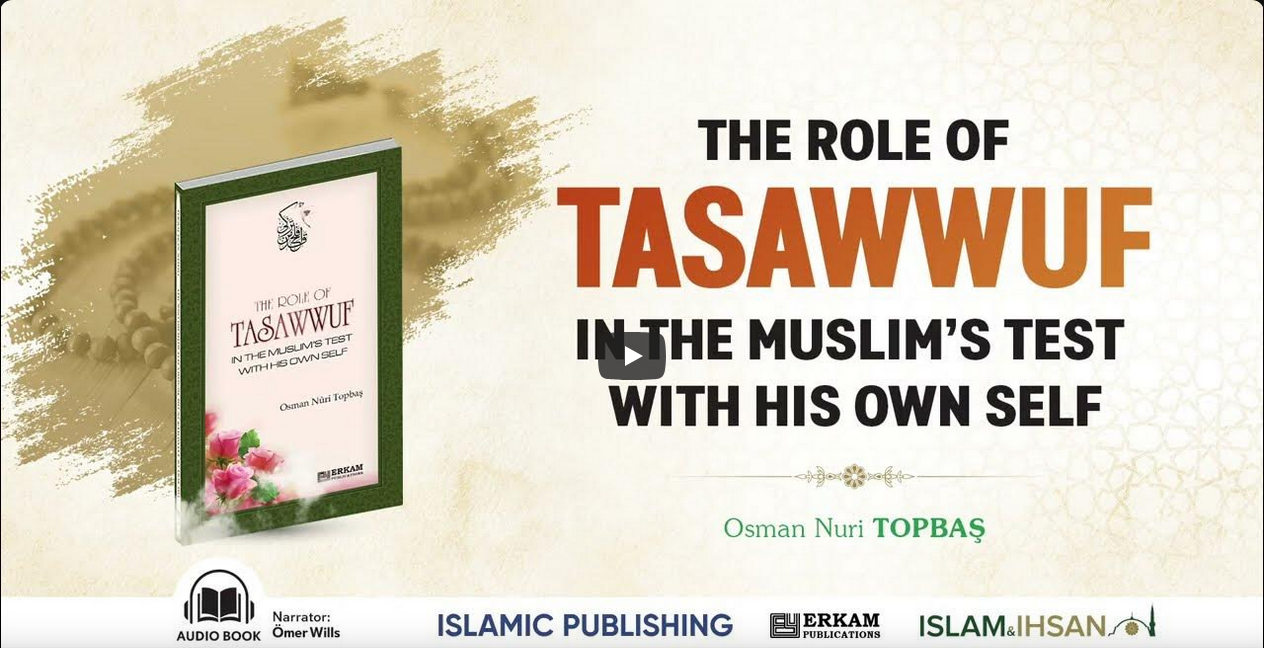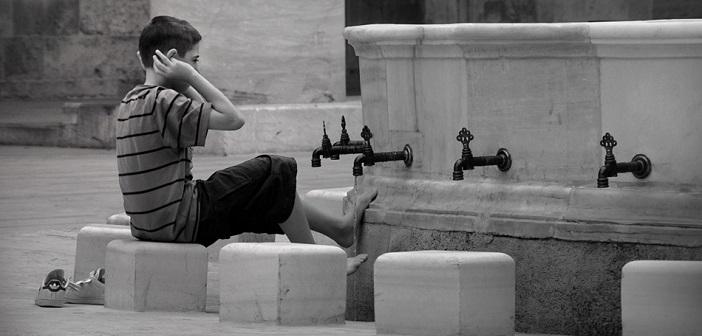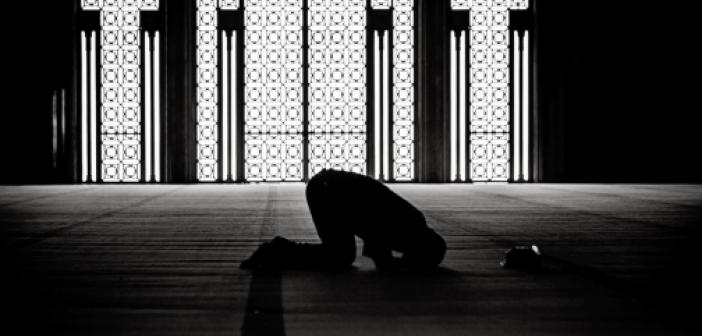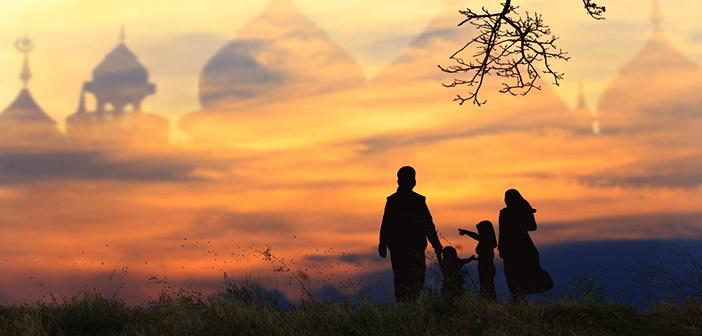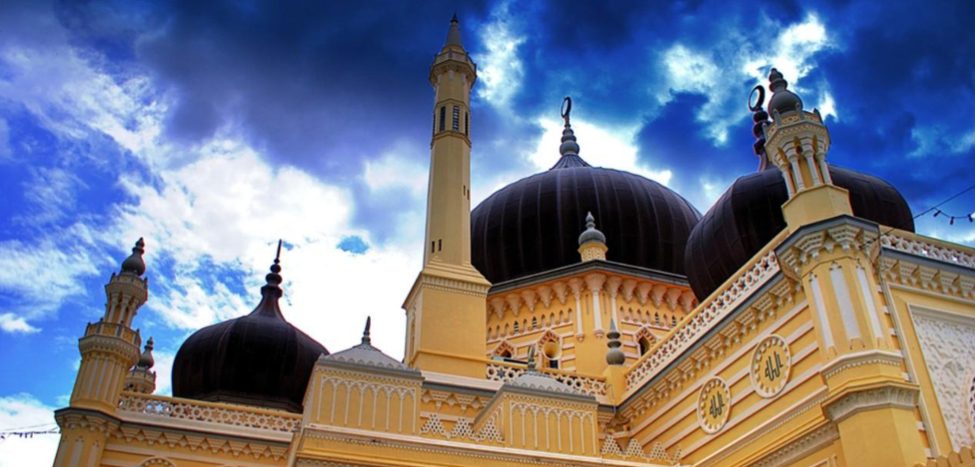
Who is Muhammed Mâsûm Sirhindî?
Who is Muhammed Mâsûm Sirhindî? What kind of person Muhammed Mâsûm Sirhindî? When did Muhammed Mâsûm Sirhindî live?
Muhammed Mâsûm Sirhindî [1599 - 1668]
Muhammed Mâsûm Sirhindî (may Allah have mercy on him) was the third son of Imam Rabbani and was born in the hijri year 1007 (1599).
Imam Rabbani saw in this son, despite his young age, a high capacity and potential to be guided and the ability to guide and took even greater care in training his outward and inner nature. He said to him:
“My son, finish your study of the outward sciences for we have very important and elevated work to do with you”.
Muhammad Masum memorised the Holy Qur’an at a young age. He completed his study of all the outward sciences. Even though he occupied himself with reforming his spiritual state during his training , after he finished his studies he strived with all his might to attain taqwa, and made great progress in the path of tasawwuf.
He paid great attention to the instructions of his respected father. He was given the title ‘Masum’ (innocent) on account of the care he took in shunning all sins.
After the death of his father he took over his duty of guiding others. In the hijri year 1068 (1658) he went to Hajj and benefitted from the spirituality of that blessed land. After residing for a brief period in Madina he returned to India. He related the inspirations and unveilings that were bestowed on him in the Haramayn to his son Muhammad Ubaydullah (may Allah have mercy on them both) who wrote them down in Arabic in a book called Hasenatu’l-Haramayn. Muhammad Masum spent his entire life guiding his students.
The scholars gave him the title Urwat al-Wuthqa, because he was considered to be a strong and solid rope or handle to be held on to...
The shaykh trained many spiritual masters and disciples, many of whom he sent to faraway lands. Amongst his successors was Shaykh Habibullah Bukhari, considered to be the greatest shaykh of the Khorasan and Maveraunnehir, amongst many others (may Allah have mercy on them). He would provide meals in his lodge for the needy and lonely every day, morning and night.
Alemgir Aurangzeb, the grandson of Akbar Shah, and sultan of the time, affiliated himself with Muhammad Masum and perfected his training under his son Shaykh Sayfuddin (may Allah have mercy on him). Shaykh Sayfuddin raised this prince to be the Muslim ruler of India, and to wipe out all of the innovations and deviant practices put into practice by Akbar Shah.
Muhammad Masum wrote to Sultan Alemgir encouraging him to be upright and to strive in the way of Allah. The Sultan complied with his teacher’s instructions with great love and enthusiasm and defended Islam from both inner and outer threats with great resolve and determination.
Due to Khwaja Masum’s letters to his students certain of these shaykhs and rulers were extremely knowledgeable, literary and wise. He would explain fine matters of Sufism with great skill. Sometimes he would also explain and expound on his respected father’s ideas. His students compiled these precious letters into three volumes and then published them[1].
Prayer and Dhikr
Like all true Friends of Allah, Muhammad Masum (may Allah be pleased with him) placed great importance on salat. He preferred starting the initial takbir of prayer with the imam to over a thousand acts of unveilings (kashfh) or wonder working (karamat). He valued the khushu (reverence) and peace (huzur) of the prayer over spiritual uncoverings[2]. This is why he would write about the virtues of prayer in many of his letters and advised people to perform it as it should be performed. In one of his letters he wrote:
“The prayer is at the head of the acts of worship that bring a person nearer to Almighty Allah. The prayer is a sign of Almighty Allah, the possessor of infinite power. It is not possible to find the nearness one finds in prayer, in anything else. As the Holy Qur’an states: ‘...prostrate and draw near’ (Alaq, 96:12).
It is because of the prayer that the veil between Allah, Most High, and His servant is lifted. This is why the prayer has been called ‘the mi’raj (ascension) of the believer’. A person’s miraj will be perfected in accordance with the amount of khushu he performs his prayer. This is dependent on the degree to which he abides by the Sunnah when performing it...
The prayer does not merely consist of the form that we know. It has a reality in the world of the unseen, which is above all other realities...”[3].
Muhammad Masum would encourage his disciples to be in a state of constant dhikr and would say:
“When the servant remembers Allah, Allah remembers His servant, as is stated in the verse: ‘Remember Me – I will remember you’ (Baqara, 2:152). As long as the servant continues to remember Allah, Allah continues to remember Him. Is there any greater happiness than our True Master and Protector constantly remembering us and thus being subjected to divine prosperity?”[4].
Invitation to The Truth and To Good
Muhammad Masum said:
“...The path of our shaykhs of this Naqshibandiyya way is to adhere to the Sunnah and shun innovation. This is patently obvious from the books and letters they wrote. In addition, this path of truth consists of advising to goodness, cautioning against evil, loving for the sake of Allah and despising for the sake of Allah, and fighting in the way of Allah, all of which are the sunnah practices of the Messenger of Allah (peace and blessings be upon him), and are in fact the requirements and obligatory acts of the religion that he brought. In that case, to abandon amr bi’l ma’ruf is to deviate from the right path...”
The masters of tasawwuf penned countless works in order to openly explain those things that would lead to the salvation and guidance of human beings and those that would lead to their destruction and ruin. One of the Friends of Allah gave the following advice to his student:
“The path of love is very fine and sensitive and requires sacrifice. This is why you should give advice to everyone and also fear for yourself (the tricks of the nafs and especially of showing conceit)”...[5]
Knowledge of Allah (Marifatullah)
What is requested of the human being in this world is worship and servanthood. The final aim is for the heart to pass through the stages and finally attain marifatullah, that is, to know Almighty Allah. The servant should be striving for this. The real miracle is for the servant to advance in the direction of the Qur’an and the Sunnah and attain marifatullah. Muhammad Masum says:
“It is known that the aim in the creation of the human being is to attain marifatullah...If a believer does not progress on this path then he will have lost a great treasure. He will not have achieved the purpose of his creation, and failed to have carried out the thing asked of him and occupied himself with vain pursuits. He will have given importance to the desires of his nafs, and wasted the precious capital of his life on useless matters. He will have incapacitated the potential that was bestowed on him to achieve this aim. Despite having been invited to eternal happiness in this fleeting world, he turned his attention elsewhere. When tomorrow that person leaves this world and arrives in the hereafter, how will he face Almighty Allah? What excuse will he find for such heedlessness and neglect? The burning regret that such people will feel is described in the following verse:
‘They will shout out in it, ‘Our Lord! Take us out! We will act rightly, differently from the way we used to act!’ Did We not let you live long enough for anyone who was going to pay heed, to pay heed? And did not the warner come to you? Taste it then! There is no help for the wrongdoers’ (Fatir, 35:37).
We should know this well that union with Allah is much more pleasurable than the bounties of the hereafter. Furthermore, to be distant from and deprived of His Divine Beauty is the greatest loss (There are two Paradises, the first of which is the realm of Paradise, which is the reward for servanthood and the second is the Paradise of seeing the Beauty of Allah (Jamalullah).
This world is the examination centre for the hereafter. The human being is sent here only once (The examination continues until the last breath and then the eternal life begins). Our Lord has said:
‘Those who are blind in this world will be blind in the hereafter and even further off the Path’ (Isra, 17:72)
According to a narration, Imam Qushayri once saw his teacher Abu Ali Daqqaq in his dream after he had passed away. His teacher was extremely sad and was weeping. Imam Qushayri asked him:
“Master, why are you sad or is that you wish to return to the world?”
Abu Ali Daqqaq replied:
“Yes I wish to return to the world and knock on each door one by one and warn them:
“O people! Beware of remaining heedless of your generous Lord. Are you aware of how infinite a power you are neglecting?” I wish to warn them so that they know where it is that the human being came from and where he is heading.
In that case, what is absolutely necessary for us who are heedless is to spend our precious lives in understanding these elevated and wonderful meanings.
Let us listen carefully to the explanation of this mystery and the ways of knowing Allah from the travellers and righteous who were seekers of these methods. Let us run to wherever we can benefit. Even though we may not be able to attain this precious treasure in its entirety, at least let us not deprive ourselves of the thought of trying...
What is needed for the traveller to the Truth is for him to continue in his efforts without rest, and always strive and be anxious to advance and to feel responsible at every instant... If this occurs, then we would hope that the ocean of Divine grace and favour will flow over him and the true lover will be saved from its waves and a window of marifatullah will open into his heart and he will begin to know Allah...
My request from my precious friends is this: do not deprive this poor brother of yours of your prayers and ask Allah that I attain knowledge of Allah”[6]
Muhammad Masum says:
“Marifah is better than working miracles and experiencing unveilings. Marifah is to discover the divine mysteries; whereas the extraordinary states and karamat are the discovery of the states of created beings. In that case the difference between marifah and karamat is like the difference between the Creator and the creation. True marifah helps one in perfecting one’s faith and spiritually progressing. However, karamat are not like that and the perfection of the human being is not dependent on them...The person who seeks kashf and karamat seeks out petty things and is a slave to them. He is deprived of closeness to Allah and knowing him in his heart...If a person begins to see himself above other people on account of the karamat that he displays, he will be dragged to pride and conceit and will be deprived of the benefits of worship and the spiritual path and will have closed the door of marifah onto him”[7].
A person’s youth is the best time to achieve this lofty goal. In regards to this matter the master said:
“My child! The most precious time of your life is your youth. These days of strength and soundness of limbs will pass and the time of old age and weakness will arrive. It is a shame that people delay their attaining marifatullah to their old age, which may not even arrive. They waste away their most honourable time on their desires and whims, which are the most disgraceful of things. Do not forget: “Those who say ‘I will do it tomorrow’ are ruined”[8].
Love of Allah (Muhabbetullah)
In one of his letters Muhammed Masum (may Allah have mercy on him) writes:
“The letter that you sent via our precious brother Muhammad Hanif arrived. We were very happy when we read it. When we sensed your effort, passion and zeal in reaching Allah, our joy increased. How great a bounty it is when Allah, Most High, establishes His love in the heart of His servant and causes him to burn due to separation from his Lord .., especially in this time of dissension and darkness. We should know the value of this bounty and be grateful for it and be filled with peace and joy at this divine favour. We should keep our aspirations high and know that it is a must to strive to increase this state by asking: “Is there no more?”
One should strive until one reaches the final stage of Divine Love and until one completely surpasses all things other than Allah. We need to devote ourselves to the True Beloved and to nothing other than Him and to stop pursuing idle matters...
O my happy and fortunate brother! If you wish to walk in the path of the beloved servants of Allah then you must abide by the conditions and etiquette of this path. You must shun all innovation (bid’a) for this shunning is the foundation of Sufism. Let your deeds, your acts, your words and your character be in harmony with the rulings given by the pious scholars. Take the character of the righteous to be your emblem and harbour love for the needy. Be moderate in your sleep, your eating and your speech. Try to stay awake during the pre-dawn to the best of your ability. Know that prayer, seeking forgiveness and weeping (for Allah) at that time is a treasure. Be desirous to be with the righteous and converse with them and never abandon this. You would have heard the saying “A person is on the religion of his friends”. Know well that it is not fit for those who desire the afterlife and everlasting bliss to indulge in the pleasures of this world...”[9].
Muhammad Masum advised freeing oneself from fleeting loves and focusing on divine love as follows:
“The purpose in the sayr u suluq, in abstention, in struggle and in hardships, is to be freed of the love of things other than Allah. All of these efforts are to bring forth one’s servanthood, one’s weakness and one’s pitifulness in the face of Allah, and to realise that one is nothing compared to Him”[10].
The prophet Muhammad (peace and blessings be upon him) said:
“Whoever knows himself knows his Lord” (‘Ajluni, Kashf al Khafa, II, 361).
Yahya bin Muadh writes about the virtue of attaining Allah’s love as follows:
“The people will love you to the degree that you love Allah. The people will fear you to the degree that you fear Allah. The people will concern themselves with you to the degree that you are concerned with Allah, Most High”.
If a person is happy at obeying the commands of Allah, then all of creation wishes to serve him with great enthusiasm and joy. If a person remembers Allah and contemplates Him, then everything will look at him and find peace and joy. In that case, turn yourself completely to Allah, Most High, and do not turn to any other. Do not let your nafs occupy you. Do not trust in anything other than the grace of Allah”[11].
Seeing Your Own Faults
In order for a believer to be humble and to carry out his deeds in an acceptable fashion, he needs to perceive his own weakness and see his own faults. The sign of servanthood is weakness and deficiency. Muhammad Masum gives the following advice on this matter:
“Be upon worship and obedience and also seek forgiveness for the deficiency in your worship. Do not consider your deeds to be enough for Allah. One of our great men said: “Perform righteous deeds and seek forgiveness. This is the path of servanthood[12].
“When a person considers himself imperfect, this modesty increases the value of his deeds and makes it easier for them to be accepted”[13].
The hardships that a person encounters are generally a consequence of their own faults. The intelligent person should immediately check himself when he encounters something undesirable and consider whether there is anything lacking in his servanthood to Allah. If he finds a fault, he should strive to correct it immediately.
One time Muhammad Masum gave the following advice:
“The reason we are oppressed by our rulers is our own wrongdoing. It has been said that “your deeds are your rulers”. In that case reform yourself and enter the path of scrupulousness (wara’) and taqwa[14].
His Death
When Muhammad Masum (may Allah have mercy on him) realised that his death was near, he increased his preparation for his journey to the hereafter. He withdrew completely from all worldly affairs. He continued to pray to Allah to accept him amongst the most elevated of friends. He divided up his precious library amongst his children, his loved ones and his sincere and worthy students, by drawing lots.
One day, while he was giving a lesson on hadith to his students, he felt an intense pain in his foot. This pain gradually moved to his knees and then to his entire body. He tried not to let those around him know of his discomfort and when the pain got too much, he sought consolation in recitation of the Holy Qur’an. He took care to perform his prayers in congregation. In his letters of that time he generally wrote the following:
“This poor Muhammad Masum is departing the world. Help him to depart with faith at his last breath, by praying for him”.
As he passed away his last words were “As salamu alaykum (Peace be upon you)”.
The date was the 9th of Rabi al awwal 1079 (1668 AD). He was buried in Sirhind. Sultan Alemgir had a high domed shrine built over his grave.
Words of Wisdom
- “Enthusiasm or zeal is a great bounty. The essence of this matter is enthusiasm and love. Spiritual growth and drawing nearer to Allah are dependent on them”[15].
- “Almighty Allah did not create you so that you could eat and drink, sleep and live a life of pleasure. The true land of living and benefitting from bounties is the hereafter. You were created for obedience, servanthood and to know yourself”[16].
- “Almighty Allah, who is independent of all the worlds, invited us to Himself, and guided us to divine union, and through the greatness of His grace, he opened up this path for His servants. Woe to us if we remain distant and veiled from the Beauty of Allah while we have been sent the invitation and given a guide and if we are unable to free ourselves of the bond of our nafs and whims”[17].
- “The pleasure of submitting to the commands of our True Master and obeying Him, is much greater than the pleasure that comes from the unlawful. When our Lord, who bestowed upon us all bounties, is pleased with a person and his deeds, this is such a great bounty that no other bounty can come close to it. Likewise, there is no pain equal to the pain of remaining distant from the pleasure of our Lord”[18].
- “A person who wishes to satisfy the desires of their nafs has abandoned seeking the pleasure of Almighty Allah”[19].
- “Attar-i Shibli (may Allah have mercy on him) wept for forty years and was unable to raise his head and look up at the heavens. When they asked him why he was weeping, he replied:
“I weep out of my fear of the grave and the terror of the Day of Judgment”.
When they asked him why he could not look up at the heavens, he replied:
“I am ashamed of my sins. I have committed many sins and kept laughing and guffawing in the assemblies. I am now so ashamed that I cannot look up”[20].
- “Life is but a few days but eternal wealth is gained with it. In that case, my dear brothers, do not waste your lives in vain”[21].
- “I have never seen an uncouth and crude person lacking in manners and deprived of etiquette and courtesy succeeding in reaching Allah”[22].
- “Freeing oneself of the harm of fleeting bounties and pleasures is dependent on using them in the way of Allah’s commands and prohibitions. If one does not submit to the divine rulings, these pleasures will become harmful and they will be disregarded, and their fruits will be divine wrath and punishment. True salvation is to stay as far away as one can from these fleeting pleasures”[23].
- “The human being is not content with a small amount of wealth. Whereas the less the wealth, the less time it will take and the easier it will be to account for it”[24].
- “Allah, Most High, made it so that the foundation of salvation in the hereafter be dependent on the sharia, which is supported by revelation. He made it so that drawing nearer to him is dependent on following the Sunnah of the Prophet (peace and blessings be upon him). The following verse illustrates this:
‘Say, ‘If you love Allah, then follow me…’ (Al’i Imran, 3:31)[25].
- “One should strive to perform all righteous deeds and do good works. No path will be opened by gossip”[26].
- “The person who strives to attain elevated spiritual states and ecstasy (wajd) has become a slave to the masiwa”[27].
- “Until they reach the station of the nafs al mutmainna (the contented soul) a person will only experience the outer of Islam. For instance, when they pray or fast, they will only have performed the outer aspect and form of these acts. When they reach the station of the nafs al mutmainna, however, they will be elevated to the reality of this religion, and begin to experience the true nature of faith, prayer, fasting, hajj, and zakat as well as the other commands”[28].
- “Ahmad Muqri said: “Speak little and leave off sleeping and laughing too much, for these kill the heart”[29].
- “The life of this world consists of feelings and movement. The life in the grave, however, consists only of feelings, there is no action. Allah, Most High, is the Absolutely Wise One and so has bestowed suitable actions everywhere. Feeling is absolutely necessary in the grave for one needs feelings to feel pain and pleasure. However, there is no need for movement but this world and the hereafter are not like this; they are both necessary”[30].
- “Matters concerning the realm of the spirits and the intermediate realm are very subtle. One should not dare to speak about these matters based on personal opinion and guessing. One should believe in what has been brought through revelation and leave the details to the knowledge of Allah. We believe that there are bounties and there is punishment in the grave but we do not go into detail since this is not asked of us anyway”[31].
[1]. See Kishmi, Barakat, p. 342-370; Abu al Hasan an Nadwi, Imam Rabbani, p. 190-191, 393-394; Cebecioğlu, The movement of Imam Rabbani and its influence, p. 176-178; Sulayman Kuku, Muhammad Ma‘sum Faruqi, Istanbul, ts.[2]. Muhammad Ma‘sum, Maktubat, I, 119, no: 156.[3]. Muhammad Ma‘sum, ibid, I, 167, no: 230.[4]. Muhammad Ma‘sum, ibid, III, 84, no: 145.[5]. Muhammad Ma‘sum, ibid, I, 29-30, no: 29.[6]. Muhammad Ma‘sum, ibid, I, 87, no: 102.[7]. Muhammad Ma‘sum, ibid, I, 52, no: 50.[8]. Muhammad Ma‘sum, ibid, I, 63, no: 65.[9]. Muhammad Ma‘sum, ibid, I, 14-15, no: 14.[10]. Muhammad Ma‘sum, ibid, I, 163, no: 230.[11]. Muhammad Ma‘sum, ibid, II, 82, no: 110.[12]. Muhammad Ma‘sum, ibid, I, 83, no: 92.[13]. Muhammad Ma‘sum, ibid, III, 103, no: 225.[14]. Muhammad Ma‘sum, ibid, III, 26, no: 34.[15]. Muhammad Ma‘sum, ibid, III, 66, no: 119.[16]. Muhammad Ma‘sum, ibid, III, 32, no: 45.[17]. Muhammad Ma‘sum, ibid, III, 103, no: 191.[18]. Muhammad Ma‘sum, ibid, I, 152, no: 211.[19]. Muhammad Ma‘sum, ibid, III, 45, no: 67.[20]. Muhammad Ma‘sum, ibid, I, 19, no: 18.[21]. Muhammad Ma‘sum, ibid, I, 46, no: 38.[22]. Muhammad Ma‘sum, ibid,, I, 137, no: 182.[23]. Muhammad Ma‘sum, ibid,, I, 51, no: 49.[24]. Muhammad Ma‘sum, ibid, I, 48, no: 42.[25]. Muhammad Ma‘sum, ibid, I, 58, no: 57.[26]. Muhammad Ma‘sum, ibid, I, 85, no: 99.[27]. Muhammad Ma‘sum, ibid, I, 103, no: 128.[28]. Muhammad Ma‘sum, ibid, I, 141, no: 186.[29]. Muhammad Ma‘sum, ibid, II, 81, no: 110.[30]. Muhammad Ma‘sum, ibid, I, 44, no: 34.[31]. Muhammad Ma‘sum, ibid, I, 136, no: 182.
Source: Osman Nuri Topbaş,The Golden Chain of Transmission Masters of the Naqshinandi Way, Erkam Publications
Who is Abu Bakr As Siddiq?
Who is Qasim ibn Muhammad?





